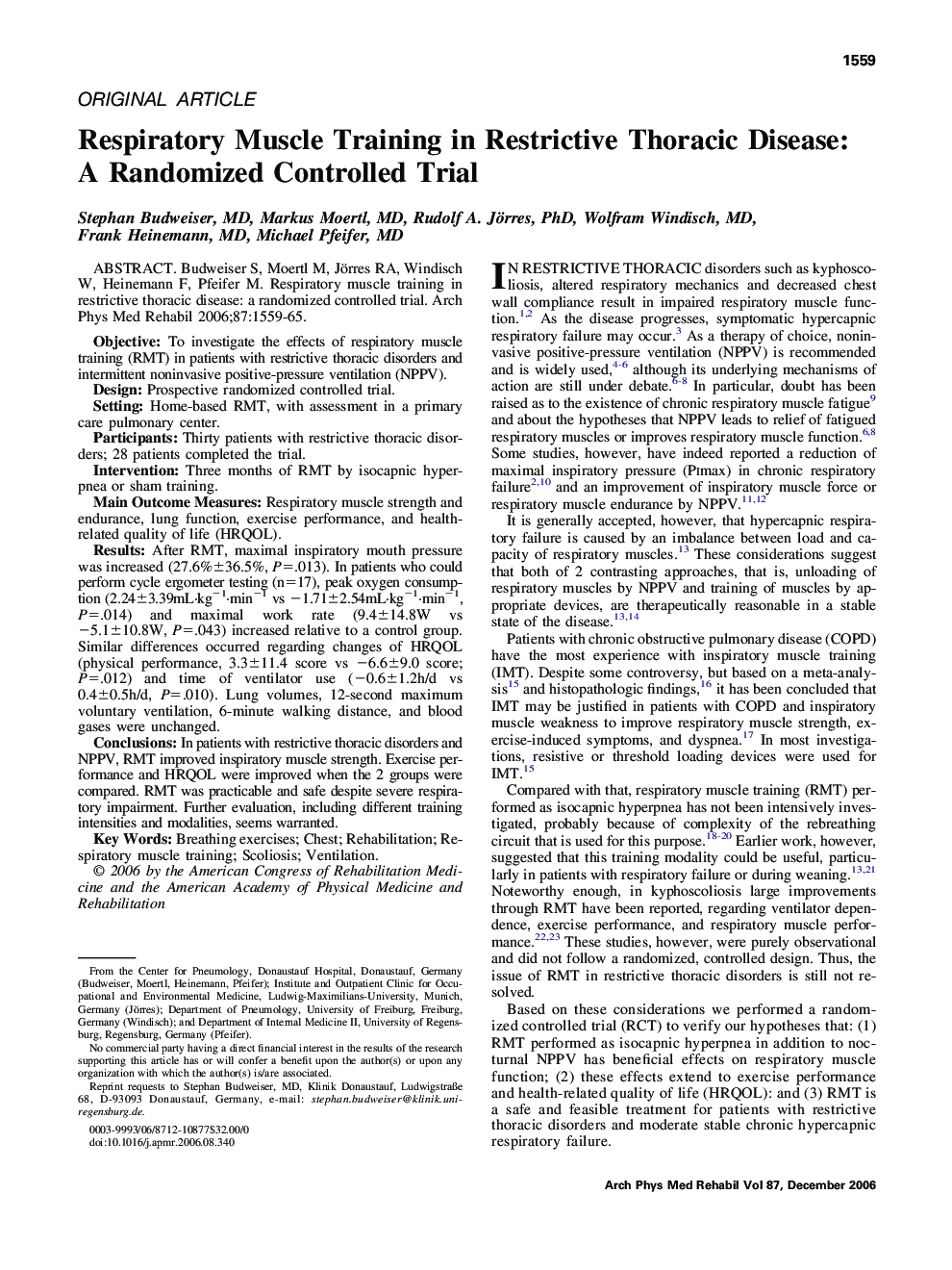| Article ID | Journal | Published Year | Pages | File Type |
|---|---|---|---|---|
| 3452398 | Archives of Physical Medicine and Rehabilitation | 2006 | 7 Pages |
Budweiser S, Moertl M, Jörres RA, Windisch W, Heinemann F, Pfeifer M. Respiratory muscle training in restrictive thoracic disease: a randomized controlled trial.ObjectiveTo investigate the effects of respiratory muscle training (RMT) in patients with restrictive thoracic disorders and intermittent noninvasive positive-pressure ventilation (NPPV).DesignProspective randomized controlled trial.SettingHome-based RMT, with assessment in a primary care pulmonary center.ParticipantsThirty patients with restrictive thoracic disorders; 28 patients completed the trial.InterventionThree months of RMT by isocapnic hyperpnea or sham training.Main Outcome MeasuresRespiratory muscle strength and endurance, lung function, exercise performance, and health-related quality of life (HRQOL).ResultsAfter RMT, maximal inspiratory mouth pressure was increased (27.6%±36.5%, P=.013). In patients who could perform cycle ergometer testing (n=17), peak oxygen consumption (2.24±3.39mL·kg−1·min−1 vs −1.71±2.54mL·kg−1·min−1, P=.014) and maximal work rate (9.4±14.8W vs −5.1±10.8W, P=.043) increased relative to a control group. Similar differences occurred regarding changes of HRQOL (physical performance, 3.3±11.4 score vs −6.6±9.0 score; P=.012) and time of ventilator use (−0.6±1.2h/d vs 0.4±0.5h/d, P=.010). Lung volumes, 12-second maximum voluntary ventilation, 6-minute walking distance, and blood gases were unchanged.ConclusionsIn patients with restrictive thoracic disorders and NPPV, RMT improved inspiratory muscle strength. Exercise performance and HRQOL were improved when the 2 groups were compared. RMT was practicable and safe despite severe respiratory impairment. Further evaluation, including different training intensities and modalities, seems warranted.
